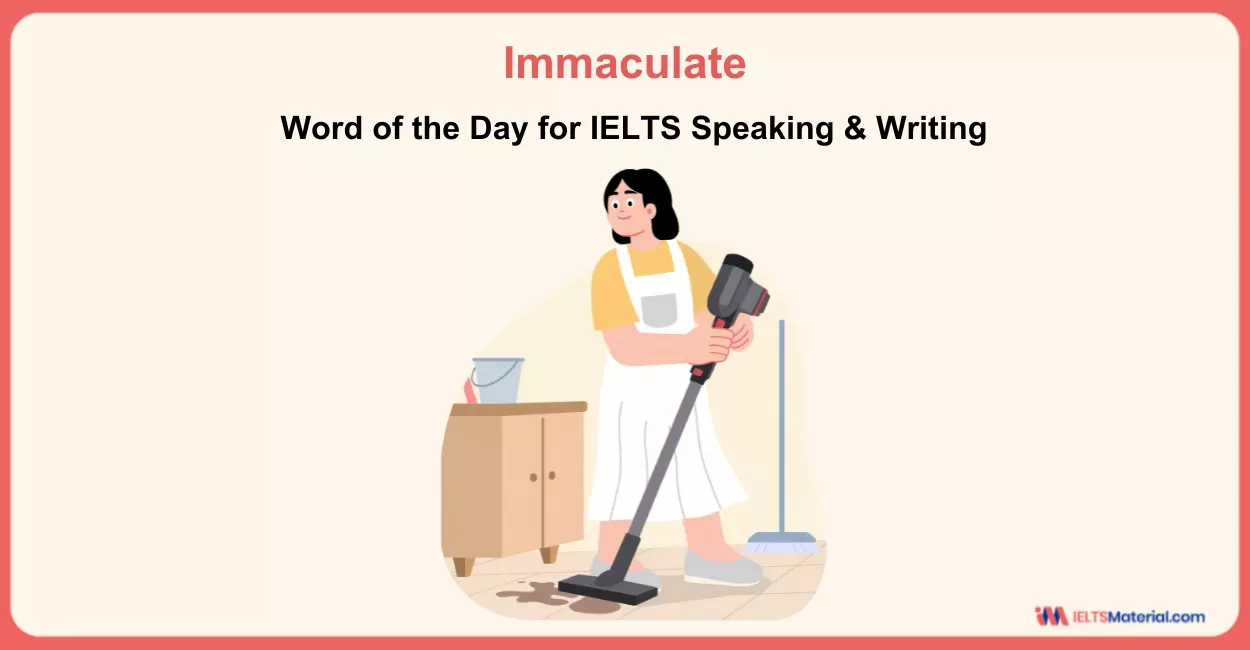Duolingo Vs IELTS: A Detailed Comparison
7 min read
Updated On
-
Copy link
Duolingo and IELTS are English language tests taken to prove their proficiency. Learn the various aspects of Duolingo vs IELTS exam and decide for yourself which exam is easier and suits your immigration goals to start preparing for a top score.
Table of Contents
- Overview: Duolingo English Test vs IELTS
- Duolingo Vs IELTS: Difference in Purpose
- Duolingo Vs IELTS: Eligibility Criteria
- Duolingo Vs IELTS: Test Format
- Duolingo vs IELTS: Speaking Test
- Duolingo vs IELTS: Exam Booking & Availability
- Duolingo vs IELTS: Score Comparison
- Duolingo Vs IELTS: Results & Exam Retakes
- Duolingo Vs IELTS: Validity Period of Test Scores
- Duolingo Vs IELTS: Which English Test Should You Take?
- IELTS vs. Duolingo: Final Verdict

Limited-Time Offer : Access a FREE 10-Day IELTS Study Plan!
In today’s globalized world, being proficient in English is increasingly essential. Whether you are seeking to study abroad, immigrate, or enhance your career prospects, demonstrating your English language skills is often a requirement. This is where exams like IELTS and Duolingo come into the picture. However, deciding Duolingo vs IELTS - which exam is easier can be difficult.
So, in this blog, we will compare the pros and cons of Duolingo and IELTS, exploring their differences, effectiveness, and overall suitability for your language learning goals. Let’s get started!
Overview: Duolingo English Test vs IELTS
Duolingo and the IELTS exam are both great options for those looking to improve their English language skills or move abroad. Both the exams have their own set of features that set them apart. Let’s look at them in detail in the table below.
|
Feature |
Duolingo English Test (DET) |
IELTS (International English Language Testing System) |
|---|---|---|
|
Developed by |
Duolingo, Inc. (a private ed-tech company) |
British Council, IDP: IELTS Australia |
|
Mode |
Online (Home-based) |
Online or Paper-based (at test centers) |
|
Duration |
45 – 60 minutes |
2 hours 45 minutes |
|
Cost |
INR 5,423 (additional $40 for results within 12 hours) |
INR 17,000 - INR 18,250 |
|
Result Time |
48 hours |
3–13 days |
|
Score Range |
10 – 160 points |
1.0 – 9.0 bands |
|
Sections |
Integrated (All-in-one) |
Listening, Reading, Writing, Speaking |
|
Retakes Allowed |
2-day wait, 3 attempts per 30 days |
Unlimited, subject to slot availability |
|
Acceptance |
4000+ institutions |
11,000+ institutions |
Duolingo Vs IELTS: Difference in Purpose
Duolingo was originally created to support language learning through interactive games, vocabulary exercises, and grammar lessons. While its English test is now used by academic institutions, the platform as a whole remains learning-focused.
IELTS, on the other hand, was developed as a formal English proficiency test. It is used worldwide by universities and colleges for academic admissions, employers and professional bodies for certifications and immigration departments for visa processing.
So, while Duolingo is a dual-purpose platform, IELTS is strictly a proficiency assessment tool.
Duolingo Vs IELTS: Eligibility Criteria
There are no formal eligibility requirements. Anyone with an internet connection and a compatible device can sign up, take the test, and receive results within days.
IELTS has basic eligibility conditions. These IELTS exam eligibility criteria are:
- You must be at least 16 years old
- You must have a valid passport or national identity document
This makes IELTS slightly less flexible, especially for younger learners or those without ID documentation.
Duolingo Vs IELTS: Test Format
The structure of the exam plays a big role in determining the ease and comfort level for test-takers. Here is a breakdown of the IELTS exam pattern and the Duolingo test pattern, so you know what to expect during each test.
Duolingo English Test Format
The Duolingo test is completely adaptive and conducted in a single session. That means the questions get harder or easier based on your answers. It tests all four language skills—reading, writing, listening, and speaking—through a variety of interactive and integrated tasks.
|
Section Type |
Description |
|---|---|
|
Reading |
Short passages, fill in the blanks, read and select |
|
Writing |
Write responses to prompts and questions |
|
Listening |
Listen to words or sentences and type/write what you hear |
|
Speaking |
Record answers to spoken prompts or describe images aloud |
IELTS Format
IELTS tests each language skill separately. It has two types: IELTS Academic and IELTS General Training, with minor differences in Reading and Writing sections. Listening and Speaking are the same for both. Unlike Duolingo, IELTS speaking is a face-to-face interview with a certified examiner.
|
Section |
Time |
Tasks |
|---|---|---|
|
Listening |
~30 minutes |
4 recorded monologues/conversations with 40 questions |
|
Reading |
~60 minutes |
3 reading passages with 40 questions |
|
Writing |
~60 minutes |
2 tasks: Describe a graph/letter + essay writing |
|
Speaking |
~11–14 mins |
Face-to-face interview with 3 parts |
Join IELTS online classes and get the edge you need to succeed.
Duolingo vs IELTS: Speaking Test
The speaking section of the exam matters a lot for people who are nervous about public speaking. Here is how Duolingo and IELTS approach the speaking section differently.
|
Feature |
Duolingo |
IELTS |
|---|---|---|
|
Speaking Type |
AI prompts, video recorded |
Live interaction with examiner |
|
Evaluation |
Automated + Human review |
Human examiner |
|
Environment |
Home-based, private |
Test center, face-to-face |
If you are more comfortable with structured answers and less human interaction, Duolingo may be easier. But for those aiming for professional fluency, IELTS Speaking provides real-world practice.
gg
Duolingo vs IELTS: Exam Booking & Availability
The Duolingo English Test is extremely flexible. Since it is conducted entirely online, you can register and take the exam anytime, even on the same day. After verifying your system and ID, you can begin the test immediately from the comfort of your home. This makes it ideal for students applying on short notice or needing a quick turnaround for score submission.
IELTS, while widely recognized, follows a more traditional exam scheduling model. You'll need to book in advance, and test slots may fill up quickly, especially during peak application seasons. Depending on your country and test center availability, you may have to wait days or weeks for your test date.
Here’s a closer look at the booking process and test scheduling flexibility for both Duolingo and IELTS:
|
Feature |
Duolingo English Test |
IELTS |
|---|---|---|
|
Booking Method |
Online via Duolingo’s official website |
Online or in-person via official IELTS partners (IDP/British Council) |
|
Test Centers Needed? |
No; Taken at home using a computer, webcam, and microphone |
Yes; Conducted at designated test centers; computer-delivered or paper-based |
|
Test Availability |
Available 24/7, 365 days a year – take it anytime |
Offered on fixed dates only, subject to availability and local demand |
Duolingo vs IELTS: Score Comparison
Understanding how each test is scored is crucial for setting your goals. While IELTS uses band scores from 1.0 to 9.0, Duolingo uses a scaled score from 10 to 160.
Instead of giving users a score, Duolingo determines their ‘skill level’ by counting how many questions they correctly answer. From A1 (beginning) to C2 (advanced), the skill level varies. On a scale of 0 to 9, with 9 representing the highest score, the IELTS exam is scored. The total score is calculated by averaging the scores of the four components, each of which is scored independently.
The table below shows how Duolingo scores roughly translate to IELTS bands.
|
Duolingo Score |
IELTS Band Equivalent |
English Proficiency Level |
|---|---|---|
|
160 |
9.0 |
Expert |
|
145–150 |
8.0 |
Very Good |
|
135–140 |
7.5 |
Good |
|
125–130 |
7.0 |
Competent |
|
115–120 |
6.5 |
Modest |
|
105–110 |
6.0 |
Basic |
|
95–100 |
5.5 |
Limited |
|
<90 |
≤5.0 |
Below acceptable |
Duolingo Vs IELTS: Results & Exam Retakes
Duolingo scores are typically available within 48 hours after completing the test. Results are emailed and can be accessed through the user dashboard. However, its scoring system is unique and not directly equivalent to traditional language tests unless interpreted through equivalency charts.
IELTS offers paper-based and computer-delivered formats, which may vary in availability and result timelines. IELTS results are released 13 calendar days after the test (for paper-based exams) and within 3–5 days for computer-based versions. These scores are widely accepted and can be compared with other tests such as TOEFL or PTE.
Both exams allow retakes, but their policies differ in terms of wait times and limits.
|
Feature |
Duolingo |
IELTS |
|---|---|---|
|
Wait Time |
2 days |
None (depends on slot availability) |
|
Attempt Limit |
Max 3 attempts in 30 days |
Unlimited |
|
Booking Flexibility |
Highly flexible |
Less flexible |
Don't wait any longer! Sign up to start your journey to a high IELTS band score today.
Duolingo Vs IELTS: Validity Period of Test Scores
Duolingo English Test scores currently do not have a set expiration date, though institutions may have their own policies on how recently your score should be earned.
IELTS band scores are valid for two years from the date of the test. After that, you’ll need to retake the exam to submit updated scores for applications.
Duolingo Vs IELTS: Which English Test Should You Take?
Still unsure of which exam suits your needs best? Given below is a checklist table that will help you pick the best option based on your personal and academic needs.
|
If You Want... |
Choose... |
|---|---|
|
Faster results and cheaper testing |
Duolingo |
|
Acceptance for immigration/visa purposes |
IELTS |
|
Home-based and low-stress experience |
Duolingo |
|
In-depth face-to-face speaking assessment |
IELTS |
|
Widest global recognition |
IELTS |
|
On-demand scheduling |
Duolingo |
IELTS vs. Duolingo: Final Verdict
In the Duolingo vs. IELTS debate, there is no one-size-fits-all answer. The choice between the two depends on your circumstances, goals, and preferences. If you need an official assessment for academic or immigration purposes, IELTS remains the go-to option, with its standardized evaluation and global recognition.
On the other hand, Duolingo can be a convenient and flexible tool for language learning, particularly for beginners or as a supplementary resource alongside traditional test preparation.
Ultimately, both Duolingo and IELTS have their merits, and it’s advisable to consider the requirements of your specific situation before making a decision. Whichever path you choose, remember that consistent practice, exposure to authentic English, and active communication.
Useful Links:
- IELTS Syllabus 2025: The Ultimate Section-Wise Exam Guide
- IELTS Registration 2025: A Complete Guide
- Free IELTS Practice Tests 2025 | Practice IELTS Mock Test Online
- IELTS Exam Fee in India 2025: Check Location-wise IELTS fees in India
- IDP IELTS Exam Dates 2025: Check Complete Schedule (January-December)
- What is a Good Score in IELTS?
- IELTS Score Report - Details on Test Report Form
- IELTS Scholarship: The Ultimate Guide for 2025
- IELTS Exam Preparation Tips for Band Score of 8+
Frequently Asked Questions
Which test is easier - the Duolingo or IELTS test?
How does the cost of Duolingo compare to taking the IELTS test?
Can Duolingo be used as a standalone option for immigration or job applications?
Which test is more suitable for academic purposes: Duolingo or IELTS?
What are the key differences between Duolingo and IELTS in terms of assessment scope?
Does achieving a high score on Duolingo guarantee success in the IELTS test?
How much is 120 Duolingo in IELTS?
Explore IELTS related articles

Start Preparing for IELTS: Get Your 10-Day Study Plan Today!
Explore other IELTS Articles

Kasturika Samanta

Haniya Yashfeen
Recent Articles

Nehasri Ravishenbagam

Nehasri Ravishenbagam

Haniya Yashfeen







Post your Comments